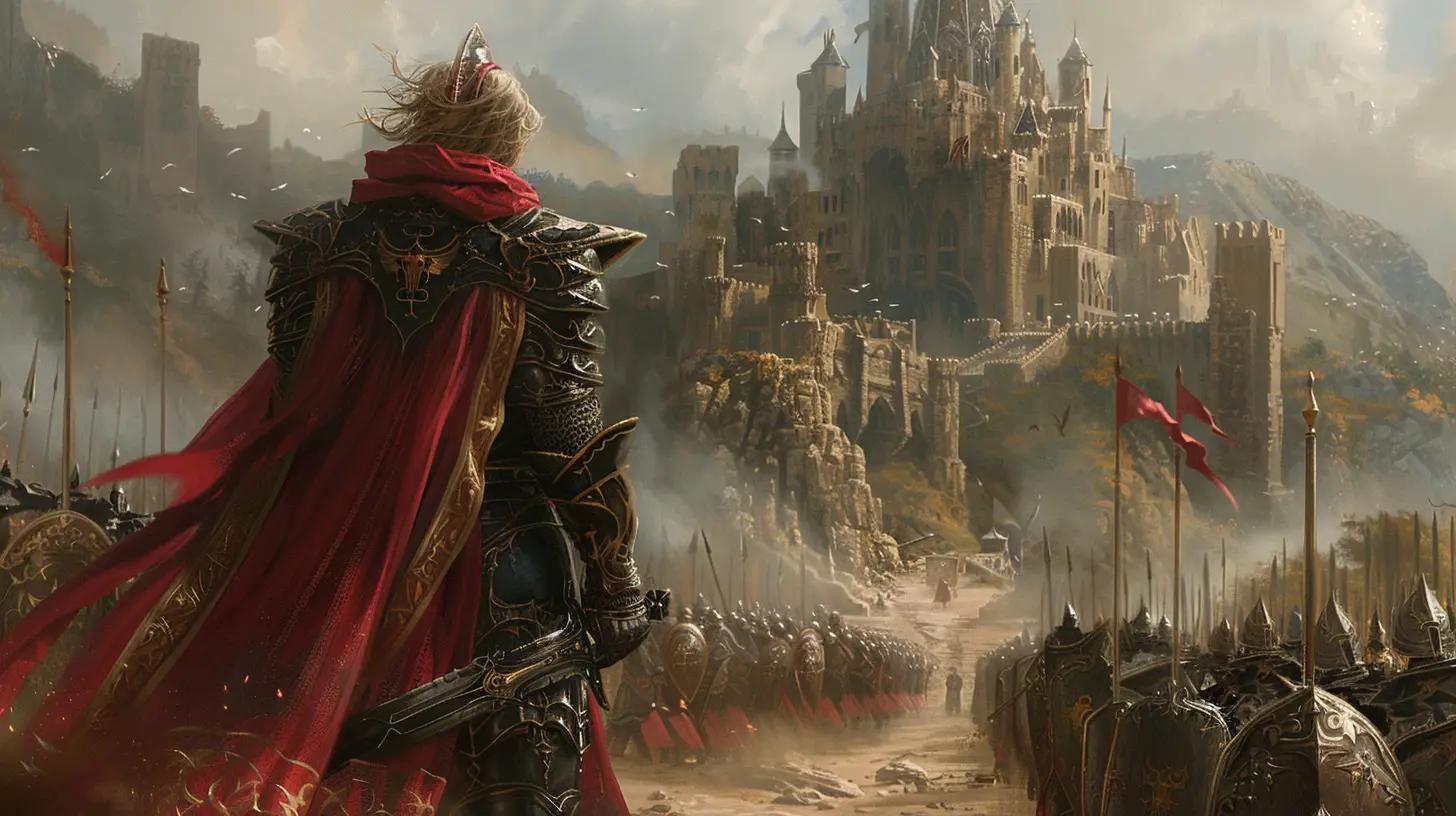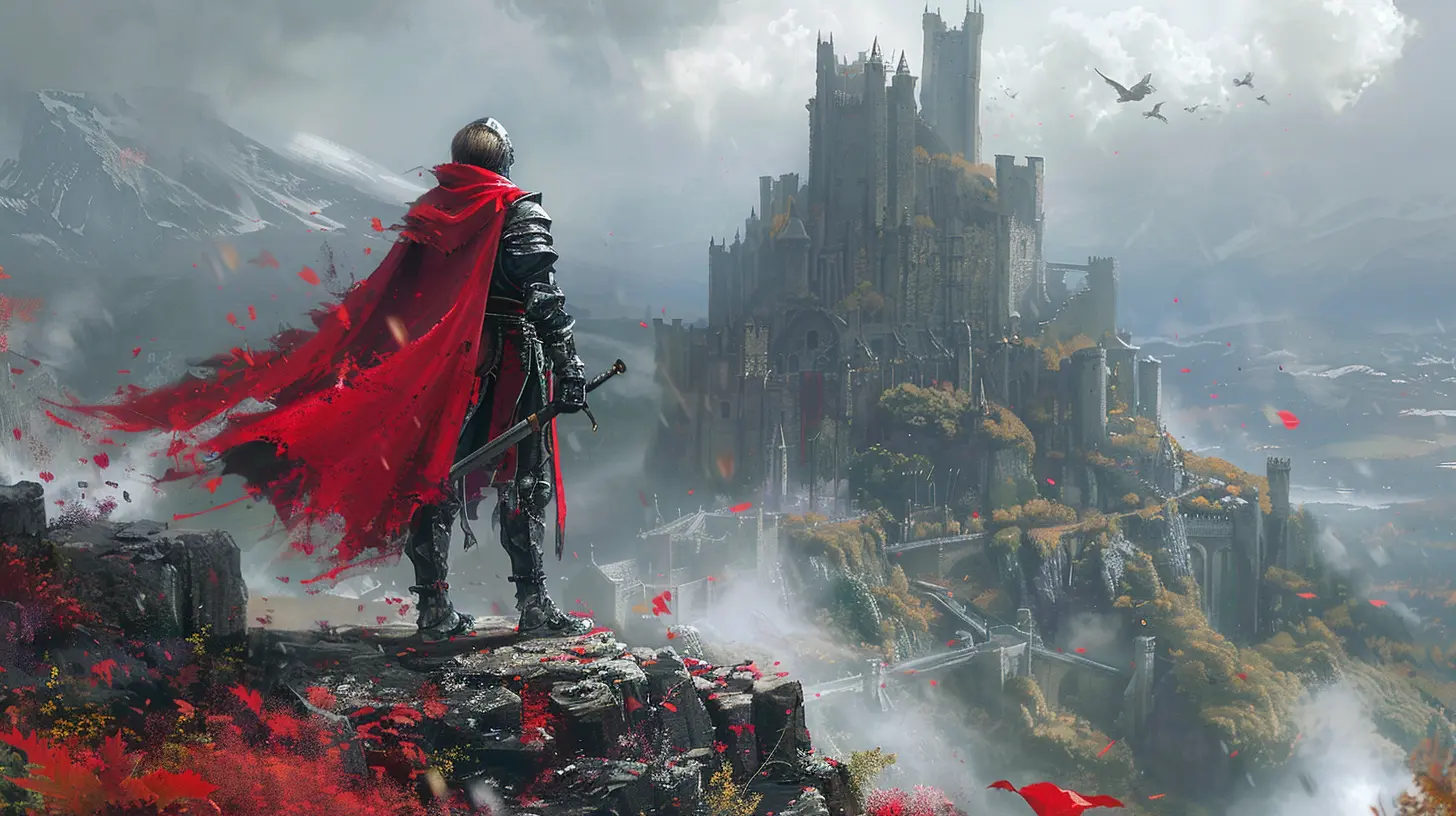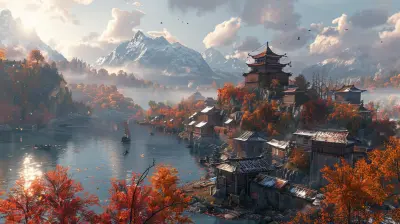Beyond the Sword: Why Fantasy RPGs Are About More Than Just Combat
6 November 2025
When someone mentions fantasy role-playing games (RPGs), it’s easy to conjure up an image of a battle-hardened hero swinging a mighty sword, facing off against ferocious monsters. You know the scene—spells flying, health bars dropping, adrenaline-pumping action. But let’s be real for a second: fantasy RPGs are way more than just an endless series of fights. In fact, the best ones are those that embrace storytelling, character development, moral choices, and the freedom to shape your own adventure.
Sure, combat is often the flashy part that the trailers use to reel you in, but underneath all the clashing swords and fiery spells lies something so much deeper. Let’s dive into why fantasy RPGs are about more than just hacking and slashing, and why that depth is what keeps us coming back for more.
Combat Is Just the Tip of the Iceberg
Don’t get me wrong. Combat in RPGs can be thrilling. There’s nothing quite like the rush of perfecting a combo or landing a well-timed critical hit. But framing fantasy RPGs as purely combat-oriented is like saying a movie is only about its special effects. Sure, explosions are cool, but what really captivates us is the story, the characters, and the emotions that tie everything together.Take The Witcher 3, for example. While the combat mechanics are a vital part of the game, the heart of what makes it unforgettable is Geralt’s personal journey—his relationships, choices, and moral dilemmas. The game gives you moments to pause, breathe, and get lost in its richly woven narrative. And let’s not forget the side quests, which often feel like fully fleshed-out mini-stories. They’re not just padding; they add layers to the world and make it feel alive.
The Power of Storytelling
Let’s face it: a fantasy RPG without a good story is like a pizza without the cheese. The combat might hold your attention for a little while, but without a gripping narrative, it quickly turns repetitive. What truly sets RPGs apart is the ability to tell stories that resonate. They pull you in, making you care about the characters and the world they inhabit.Games like Dragon Age: Origins or Divinity: Original Sin 2 shine because they don’t just toss quests at you—they give you a reason to care about them. You’re not just grinding through enemies to level up; you’re making decisions that shape the fate of kingdoms, uncovering secrets, and building relationships that feel surprisingly real.
And let’s not forget the emotional rollercoaster. Remember the heartbreak of losing a companion because of a choice you made? Or the satisfaction of seeing a character arc come full circle? These moments stick with us, long after the final boss is defeated.
The Art of World-Building
One of the coolest things about fantasy RPGs is how they immerse you in entire worlds. Good ones don’t just hand you a map and say, “Go here, fight that thing.” No, they create universes full of history, lore, and culture. You’re not just visiting a place; you’re living in it.For example, think about Skyrim. Sure, it’s fun to fight dragons, but what really makes the game special is the sense of discovery. You can stumble upon ancient ruins, hear a bard singing in a tavern, or even spend hours reading in-game books (yes, seriously). These small details make you feel like you’re part of something much bigger—a world that existed long before you arrived and will continue after you leave.
And it’s not limited to just exploring. The choices you make can impact how the world reacts to you. Help a small village fend off bandits? You might find yourself a local hero. Betray them for some quick gold? Don’t be surprised if they remember your actions later.
Character Customization and Role-Playing
Another major element that moves RPGs past just focusing on combat is the ability to create and shape your own character. Whether it’s tinkering with skill trees, deciding how your character looks, or choosing their backstory, it’s all about making the experience personal.Games like Baldur's Gate 3 are perfect examples of this. You’re not just playing a character—you’re becoming them. Want to play as a crafty rogue who talks their way out of every sticky situation? Or how about a noble paladin grappling with a moral quandary? The choice is yours. And it’s these choices—big and small—that make you feel connected to the game in a way that simple button-mashing never could.
Role-playing isn’t just about stats, though. It’s about the relationships you build, the alliances you form, and even the enemies you make. These interactions flesh out the world and your place in it, making every decision feel meaningful.
Morality and Consequences: The Grey Area
Fantasy RPGs have a knack for playing with moral ambiguity. They often present you with tough choices where there’s no clear “right” answer. It’s not all black and white; there’s a lot of grey in between. Do you save a village from destruction, knowing that the powerful artifact you need will be lost forever? Or do you sacrifice innocent lives for the greater good?Games like Mass Effect and The Elder Scrolls series thrive on these complex decisions. And honestly, that’s one of the things we love most about them. They force us to stop and think, to weigh the consequences. Combat might get your blood pumping, but it’s these moral dilemmas that mess with your head—in the best way possible.
Exploration and Discovery
Let’s talk about open worlds and exploration. Fantasy RPGs are often packed with secrets waiting to be uncovered. Whether it’s a hidden treasure, a forgotten dungeon, or a strange NPC with an intriguing backstory, there’s always something off the beaten path.Remember how in Breath of the Wild, the world felt like a playground? You could climb mountains, glide over valleys, and chase down mysteries for hours without ever engaging in combat. That sense of freedom is what keeps players hooked. It’s not just about where you’re going, but about how you get there—and the surprises you find along the way.
Social Interaction and Relationships
Combat might help you defeat your enemies, but relationships are what make fantasy RPGs truly memorable. From building romances to forging alliances, the connections you make often drive the story forward just as much as the battles.Take Stardew Valley, for instance. It may not be a traditional fantasy RPG, but it proves that compelling connections can be just as gratifying as slaying a dragon. Forming friendships, learning about others’ struggles, and even starting a family can be incredibly rewarding.
Whether it’s the camaraderie with your party in Final Fantasy XV or the banter between companions in Mass Effect, these relationships breathe life into the game and make you feel like you’re part of a team.
The Emotional Impact
Fantasy RPGs are about emotions just as much as they’re about logic and strategy. They make you laugh when your companions crack a joke, they make you cry when a beloved character dies, and they make you feel triumphant when you overcome seemingly impossible odds.These games create memories. You don’t just remember the quests or the combat—you remember how you felt at those pivotal moments. And that, my friends, is what separates a good RPG from a great one.
Closing Thoughts
At their core, fantasy RPGs are about more than just combat. They’re about stories that make us feel something. They’re about worlds that we get lost in, characters that we grow attached to, and decisions that challenge our sense of morality.So, the next time someone rolls their eyes and says, “Isn’t that just another fighting game?”, gently remind them of the emotional rollercoaster, the unforgettable characters, and the countless hours spent exploring vast, beautifully crafted worlds. Fantasy RPGs are a lot like life itself—they’re messy, unpredictable, and full of surprises. And honestly? That’s what makes them so magical.
all images in this post were generated using AI tools
Category:
Fantasy RpgsAuthor:

Whitman Adams
Discussion
rate this article
1 comments
Aelith Newman
Great insights! Fantasy RPGs truly thrive on storytelling and character development beyond combat.
November 9, 2025 at 5:07 AM

Whitman Adams
Thank you! I completely agree—strong narratives and rich character arcs elevate the RPG experience beyond just fighting.


